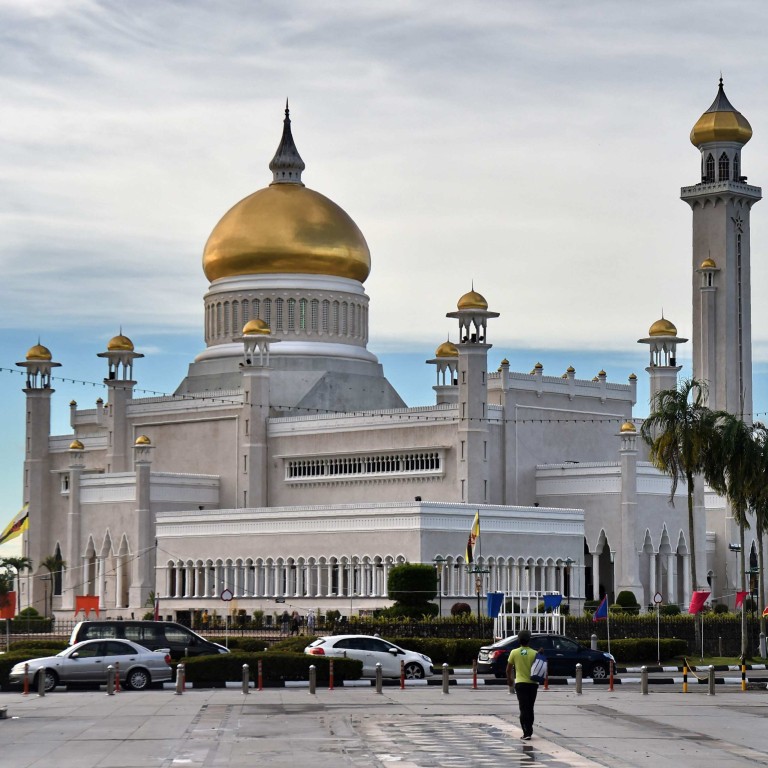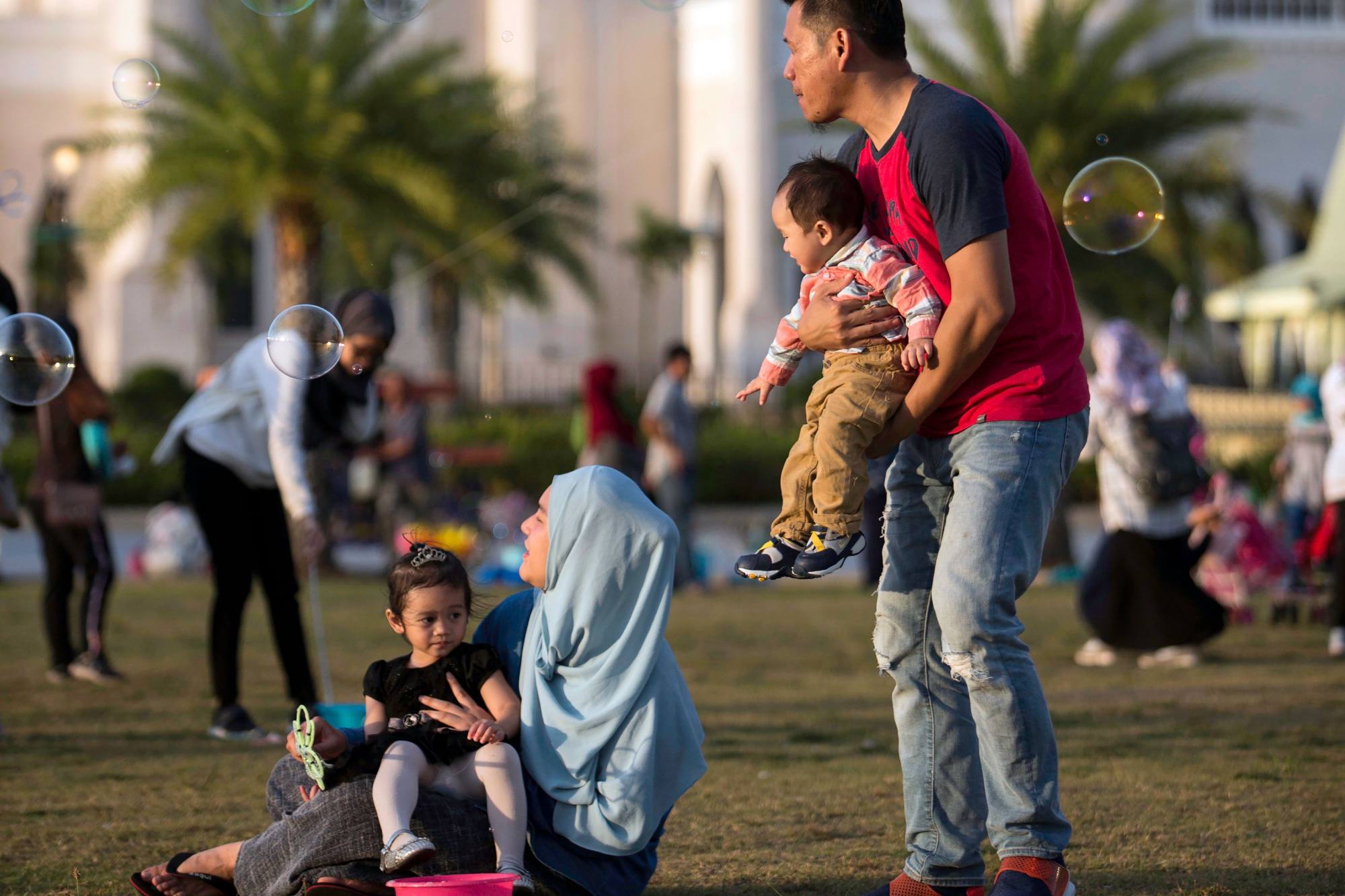
Chinese workers in Brunei live in their own little bubble. That’s a missed opportunity
- Chinese workers, many on belt and road projects, rarely interact with Brunei locals due to their living arrangements and the language barrier
- Several Chinese firms have initiated efforts to better integrate their workers into Bruneian society, which could yet help boost bilateral ties
However, a surge in Chinese investment into Brunei has yet to translate into stronger bonds between the people of both countries within the sultanate, as transient Chinese workers typically live in a bubble separate from the Bruneians.
Situated in the heart of Southeast Asia, Brunei enjoys a favourable geographical location and a stable political regime, making it an attractive investment destination for China.
For Rwandan-Chinese couples, language and culture are no barriers to love
Next month, Brunei and China will mark the fifth anniversary of their strategic cooperative partnership. Brunei has been a strong supporter of the Belt and Road Initiative, as underscored by the establishment of the Brunei-Guangxi Economic Corridor in 2014. China is also one of Brunei’s largest sources of foreign direct investment and is its third-largest trading partner. Last year, bilateral trade rose 7.5 per cent to a record US$3.08 billion – a 200-fold increase since 1991.
Currently, it is estimated that there are 42 Chinese enterprises operating in Brunei, employing around 1,500 Chinese workers. These Chinese enterprises fall into two categories: sole proprietorships and joint ventures. The former mainly consists of subsidiaries of Chinese private or state-owned companies, while the latter comprises large Chinese private and state-owned enterprises working in joint ventures with Brunei’s government-linked investment funds and agencies.
Most Chinese foreign direct investment in Brunei comes from smaller companies, particularly in sectors such as trading, logistics, fisheries and construction.
How are China’s belt and road plans for Southeast Asia working out, 10 years on?
Most transient Chinese workers in Brunei are men, typically in their 40s and 50s. They are employed under contracts with their companies or associated labour agencies in China, and hold work visas in Brunei that are renewed on an annual basis.
With their extensive experience, these Chinese workers find themselves between the lower and middle tiers of the company hierarchy. They mainly offer technical assistance in their companies while also overseeing manual labourers.
Chinese workers in Brunei differ from other low-skilled migrant workers due to the nature of their roles, which typically do not fall under the “3D” category – work that is commonly considered dirty, dangerous and degrading. Such 3D work is predominantly undertaken by Bangladeshi, Indonesian and Filipino labourers, many of whom are conversant in Malay, Brunei’s official language.
Most Chinese employees working for mainland Chinese small and medium-sized enterprises in Brunei live in a bubble. They live in shared dormitories located near office or factory sites. The dormitories are equipped with adequate infrastructure and facilities to meet the workers’ daily needs. By contrast, employees working for a large Chinese petrochemical company live in more comfortable rented flats, with amenities such as a swimming pool and a gym.

In both living arrangements, the Chinese workers reside in a self-contained environment where they are segregated from their local surroundings. Their companies arrange shuttle buses to transport employees to a supermarket for grocery shopping every weekend.
Typically, Chinese workers in Brunei hold contracts valid for two or three years. Their repetitive daily work routines and isolated living arrangements provide little incentive for them to build connections with the local community. Their limited proficiency in English and inability to speak Malay also exacerbate the communication barrier. In their shared dormitories, these workers have a “home away from home”.
Despite the challenges of physical isolation, internet technologies have enabled some Chinese workers in Brunei to connect with local Chinese-Bruneians. There are more than five active WeChat groups linking hundreds of Bruneian and mainland Chinese members. These chat groups are highly popular among Chinese workers as they serve as platforms for socialising, information sharing, and even buying and selling local products.
However, some Chinese workers have also shared their negative experiences with local Chinese, such as overcharging. Even the mini-marts near their dormitories tend to charge them higher prices, knowing their limited options due to lack of transport.
Asia’s scam menace prompts rare China-Asean-UN unified response
On the other hand, some local Chinese have also been disappointed about the limited involvement of mainland companies and workers in community and national events.
Because of the relatively small population of Chinese workers in public areas, tensions between them and the local community in Brunei have not arisen.
The separate lives of Chinese workers and the local community are a double-edged sword. Such arrangements might help mitigate social anxieties surrounding the influx of Chinese workers. However, it also represents a missed opportunity for fostering cross-cultural understanding between people from China and Brunei.
Recognising this shortfall, certain Chinese companies in Brunei have initiated efforts to foster cross-cultural understanding and integrate their employees into Bruneian society.
An example is the Muara Port Company (MPC), a joint venture between a Chinese state-owned enterprise from Guangxi and the Bruneian government. MPC has embarked on skills upgrading for Bruneian workers and enhancing the capabilities of local firms. Its workers have also participated in charity events, attended English lessons and learnt more about Islam.
MPC provides a good model for Chinese companies seeking to build connections with the local community and, in the process, help enhance bilateral relations between China and Brunei.


